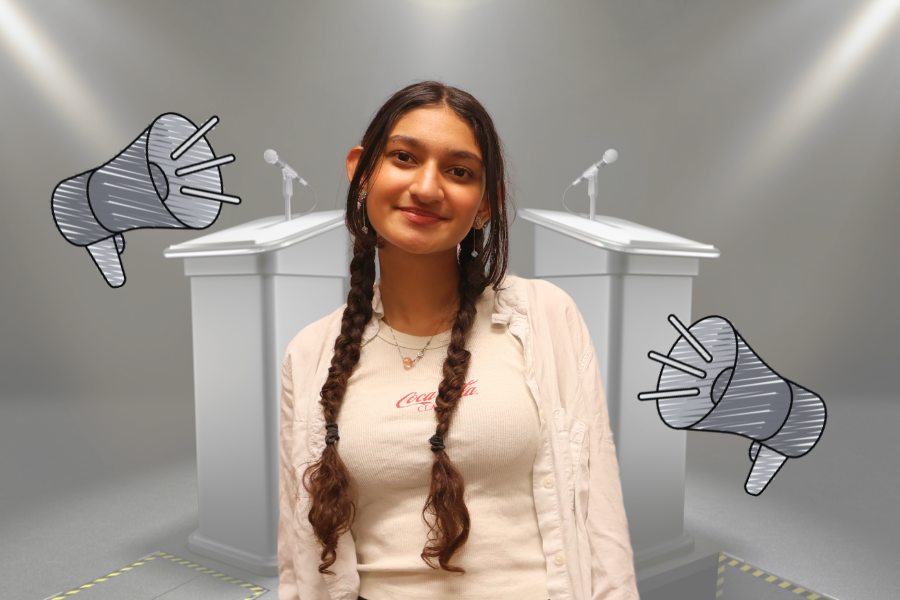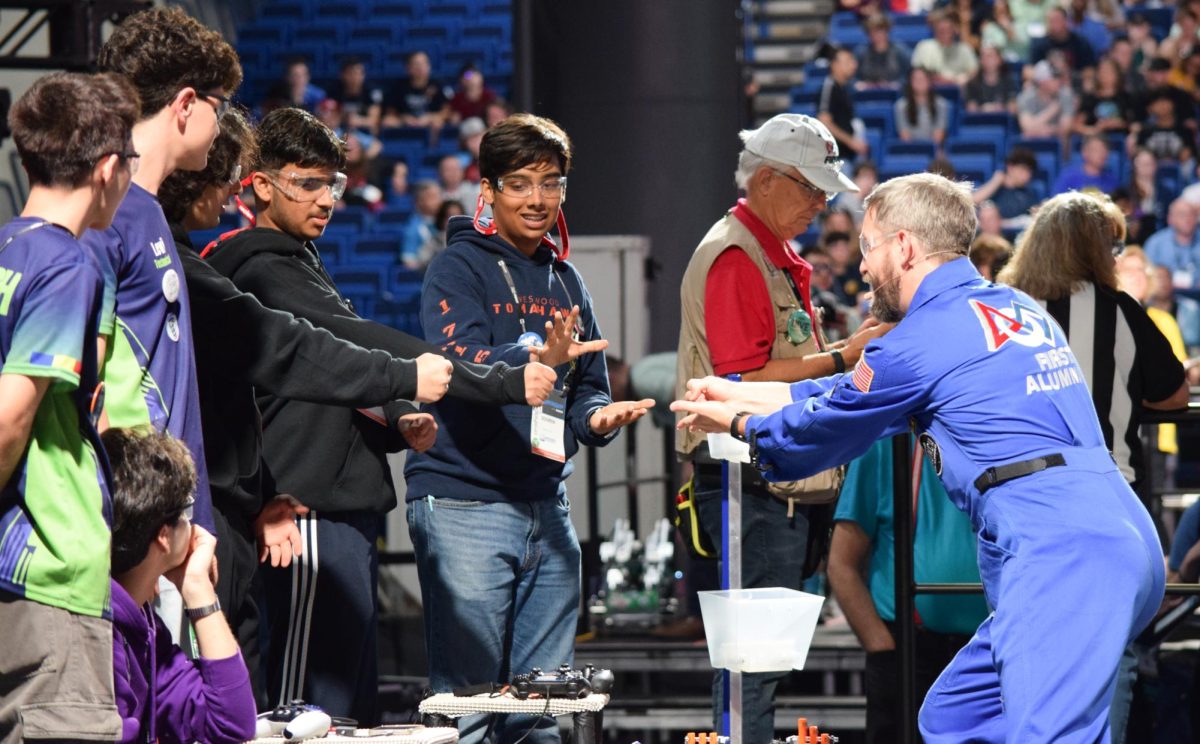Parents and students gathered in the cafeteria on Thursday, March 22 to listen to three representatives from the University of Texas (UT) discuss academic integrity and its role both in high school and college.
Principal Erin Campbell hosted the event, along with the Parent Teacher Student Association (PTSA), to spread awareness about the harmful effects of academic dishonesty.
“My hope is that students will begin to hold each other more accountable and that acts of academic dishonesty become less socially acceptable,” Principal Campbell said.
The seminar opened with Khary McGhee, the UT Assistant Director of Student Conduct and Academic Integrity, discussing the university’s specific approach to addressing academic misconduct.
“We have faculty disposition and administrative disposition,” McGhee said. “Faculty disposition, that’s basically an admission of a violation. Students don’t have to accept the disposition. An administrative disposition, we get the referral and we do the investigation, [then] students can actually appeal the sanctions themselves. You’d say, ‘yes, I broke a rule, but the sanctions are a little disproportionate to what I did.’”
Academic misconduct can involve anything from plagiarism to getting the answers ahead of time, or having access to unauthorized materials on a test. McGhee discussed the level of damage that can be caused by partaking in cheating of any kind.
“Falsification, fabrication, this is a big deal,” McGhee said in the presentation. “We’re a research university. We have students that do remarkable work, and generate data and discoveries that resonate. I’ve worked in institutions where faculty [and] in some cases even high level grad students, their data is discredited. And yes, that scholar is discredited, but it also goes back to the university.”
If a student is accused of academic dishonesty, UT utilizes the preponderance of evidence standard, claiming students guilty unless there is significant evidence to prove otherwise. To address a case of academic misconduct at UT, a faculty member first submits a referral to the Student Conduct and Academic Integrity in the Office of the Dean of Students, then the department has a meeting with the student in question.
“In the meantime, the student is unable to drop this course,” McGhee said. “In a lot of cases of academic misconduct, the student chooses to [cheat] because they’re not doing well in the course. So this might be a course that you wanted to drop anyway, so it doesn’t hurt your GPA. Well, now, you can’t drop the course.”
In addition to the consequences enforced by the school or university, students will likely also face natural consequences if they participate in academic dishonesty.
“Students who engage in cheating aren’t accurately demonstrating what they know and don’t know,” Ms. Campbell said. “Teachers are then unable to properly gauge their level of learning and what supports they might need.”
To avoid cheating incidents, both teachers at the high school level and professors at the university level utilize tools such as turnitin.com, Blocksi, or simply a syllabus detailing what can be considered as academic dishonesty versus what is acceptable.
“[There can be] kind of an ignorance of the rules, [but] the syllabus, that’s your contract with the professor and the professor’s contract with you,” McGhee said. “That’s your responsibility as part of your job as a student here.”
After discussing how academic misconduct is handled at UT and what the consequences of partaking in such behavior are, McGhee passed the mic to Associate Director of Student Conduct and Academic Integrity at UT Melissa Jones Wommack, who continued the seminar by talking about how plagiarism occurs, whether intentional or not.
“A lot of times plagiarism happens completely by accident,” Wommack said during the presentation. “It is a matter of not knowing how to cite correctly or failing to cite altogether. So just making sure that you understand and have a good grasp on what the expectations are [for] each assignment can be a resource for you.”
At Westwood specifically, cheating is prevalent, whether it be accidental, or to achieve a high grade.
“Students cheat when they feel overloaded or do not have enough time to achieve at their highest level across multiple rigorous courses,” Ms. Campbell said. “Westwood is a highly competitive school, and I believe that cheating is sometimes motivated by a desire to be as competitive as possible with class rank and GPA.”
The conversation continued when Patrick Patterson, Assistant Vice President in the Center for School Partnerships at UT, talked about how to stop academic dishonesty in a learning community and what the harms of letting it continue are.
“There’s an intelligence to having integrity,” Patrick Patterson said during the presentation. “If you choose to get in that study group and cheat, and if you get caught, that’s it. Now at UT, you getting suspended or expelled, that’s permanent, and employers nowadays are looking at those sorts of things. You have to be honest, or people aren’t going to want you.”
The presenters emphasized the importance of breaking cycles and how seminars such as this one help to bring an end to the cycle of cheating before it reaches the college level.
“We try to be proactive,” McGhee said. “That means getting out on campus, giving talks like this, talking to faculty to kind of help them understand the common process [and] what we’re trying to achieve, meeting with students even during orientation to, again, try to help them understand why we’re here what our purpose is and how we can help them.”

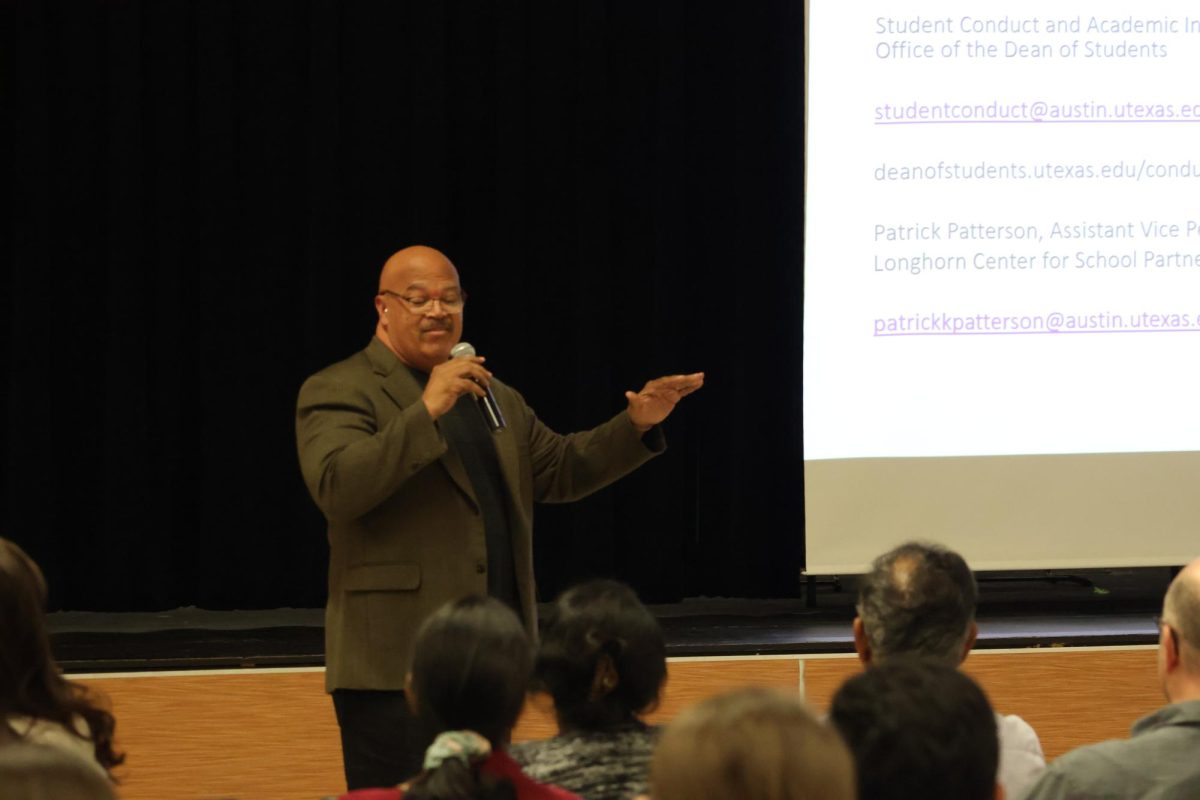
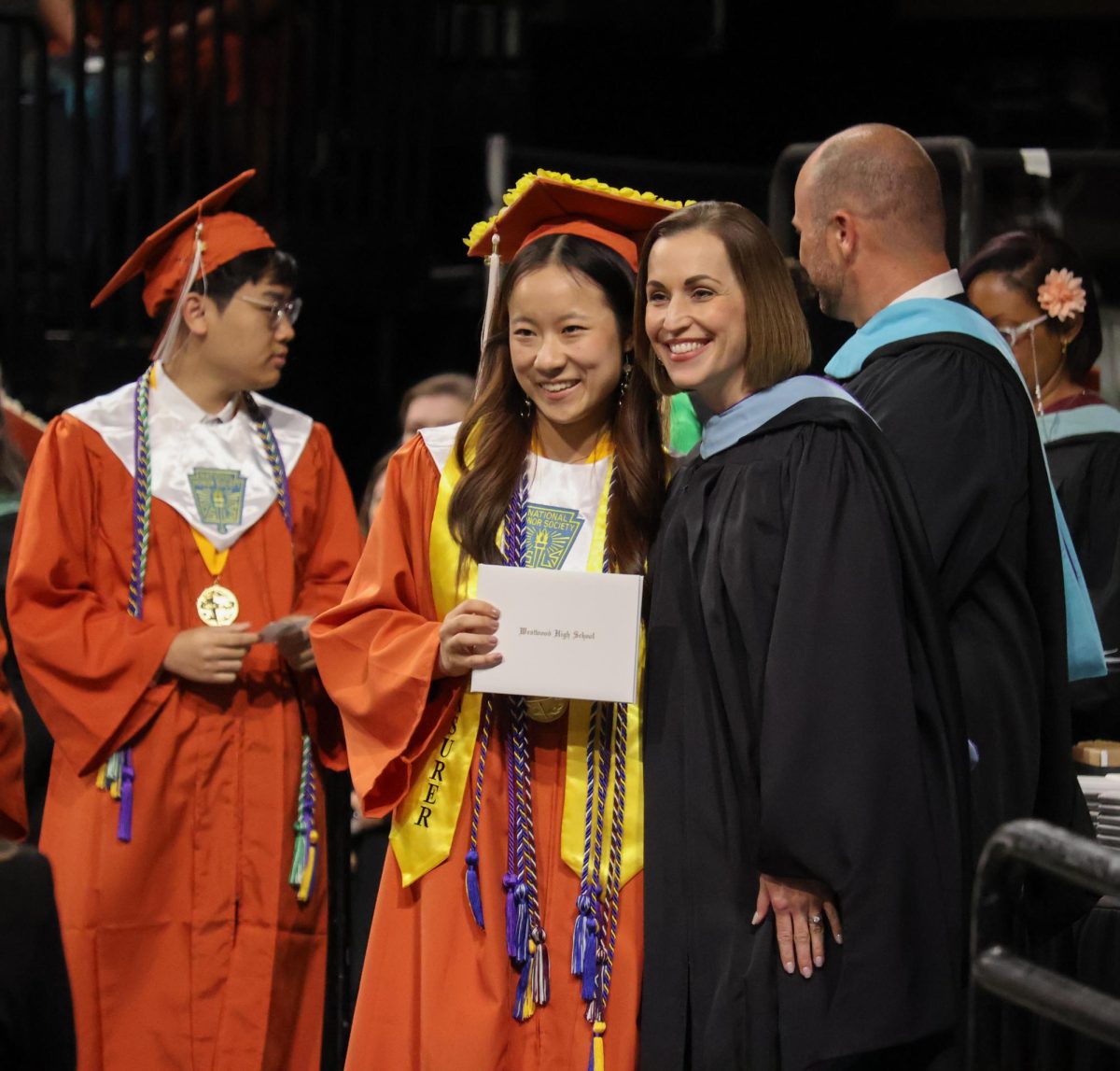


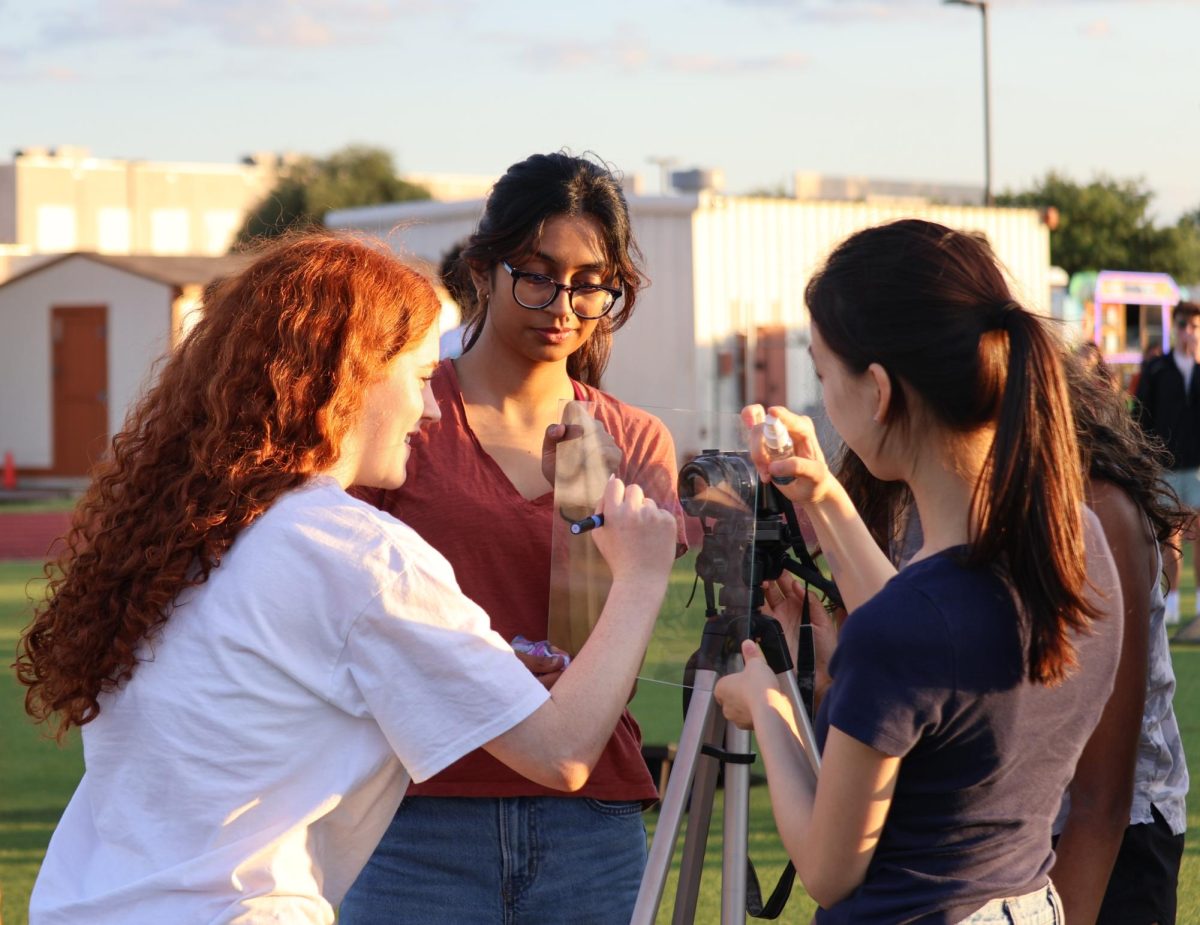
![Holding her plate, Luciana Lleverino '26 steadies her food as Sahana Sakthivelmoorthy '26 helps pour cheetos into Lleverino's plate. Lleverino was elected incoming Webmaster and Sakthivelmoorthy rose to the President position. "[Bailey and Sahiti] do so much work that we don’t even know behind the scenes," Sakthivelmoorthy said. "There’s just so much work that goes into being president that I didn’t know about, so I got to learn those hacks and tricks."](https://westwoodhorizon.com/wp-content/uploads/2025/05/IMG_0063-1200x1049.jpg)


